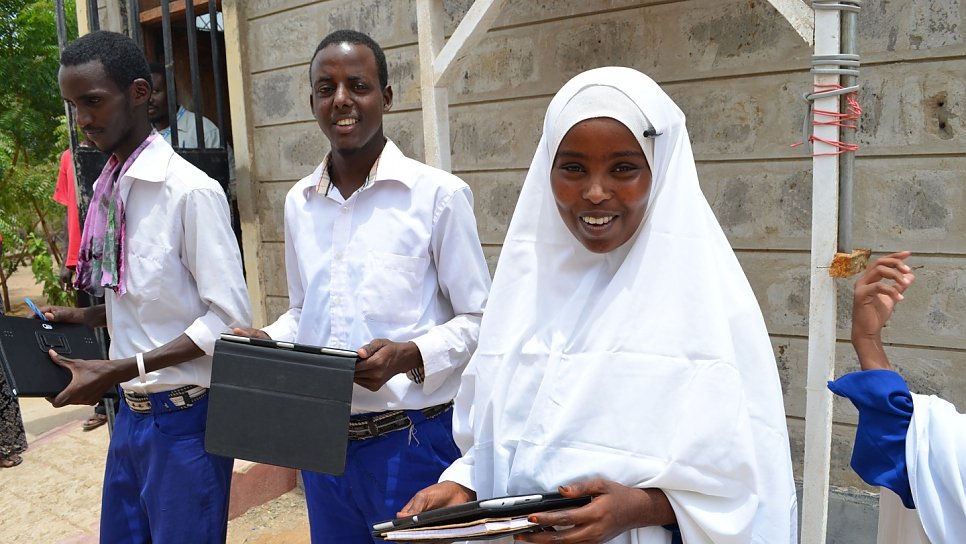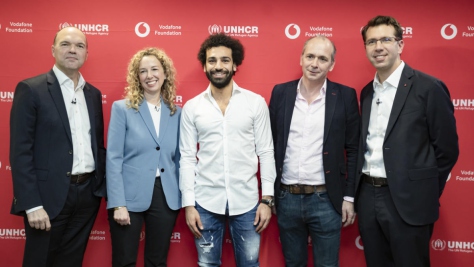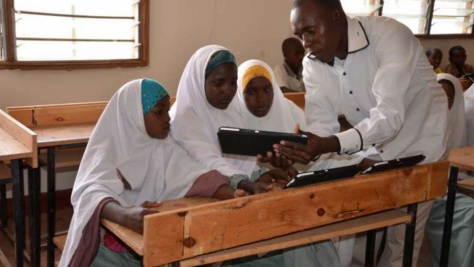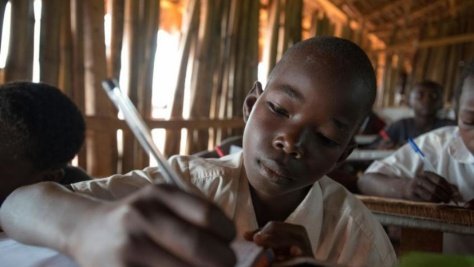Vodafone Foundation
About the partnership
Since: 2013
Locations: Kenya, Democratic Republic of the Congo, Tanzania, South Sudan
Refugee classrooms are perhaps the toughest in the world. Throughout East Africa, teachers are routinely working in under-resourced classrooms, trying to meet the needs of a large number of mixed-age and mixed-ability learners. Fostering quality learning in these environments remains a constant challenge for even the most talented teachers. This is especially difficult when teachers do not have access to dynamic or current educational resources.
In response, the Instant Network School (INS) was designed to address learning resource needs. In collaboration with the Vodafone Foundation and refugee communities, UNHCR has developed and adapted INS to meet context-specific challenges. Instant Network Schools provide a holistic solution to transform an existing classroom into an innovation hub for learning – complete with a local network; internet connectivity; sustainable solar power; a classroom kit that includes 25 tablets, a laptop, a projector and speaker; localised digital content; and a robust teacher training programme.
Initially developed in Dadaab, the world’s biggest refugee camp situated in Kenya, with the testing of 13 centres in 2013, each expansion of the INS has adopted a community-driven model whereby the design is co-developed with members of the school community. Through this process, the locations (schools or community centres), the types of content, the inclusion of specific resources, the training plan, and the programmatic agenda are determined. Each Instant Network School is run by a local coach who provides in-service training and support for learners and teachers. Daily logs of INS use are recorded and uploaded to a global platform; which helps to track utilisation, flag challenges, and identify areas for re-design or capacity building.
Impact at a glance
- Since 2013, Vodafone Foundation has been a flagship partner for UNHCR in both innovation and education, helping to expand refugees’ access to education and connectivity through the Instant Network Schools programme. To date, a total of 36 Instant Network Schools have been launched throughout the DRC, Kenya, South Sudan and Tanzania
- The Instant Network Schools programme is a rare example of an education technology programme that works effectively within schools in refugee camps and achieves impact because of its holistic approach
- The INS has helped refugee children as well as teachers become more motivated and confident, and has the potential to have catalytic impact across the education sector
Contact us
If you are interested in exploring a partnership with UNHCR, please contact us at [email protected].




